THOMAS OF LANCASTER, REBEL COUSIN OF KING EDWARD II, FROMWARLORD TO SAINT/EPILOGUE
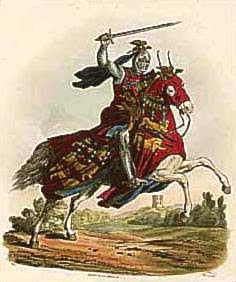
http://www.newworldencyclopedia.org/entry/Thomas_Plantagenet,_2nd_Earl_of_LancasterTHOMAS 2ND EARL OF LANCASTER
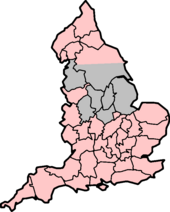
Thomas of Lancaster’s main possessions (Maddicott).THOMAS OF LANCASTER’S MAIN POSSESSIONShttps://en.wikipedia.org/wiki/Thomas,_2nd_Earl_of_Lancaster
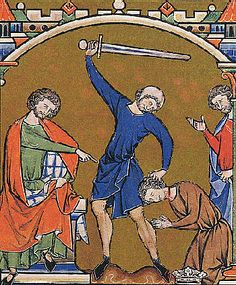
MURDER OF PIERS GAVESTON,INTIMATE FRIEND ANS[POSSIBLE] LOVER OF KING EDWARD II, UNDER THE DIRECT RESPONSIBILITYOF THE EARLS OF LANCASTER, WARWICK, HEREFORD AND ARUNDELMURDER OF PIERS GAVESTON,INTIMATE FRIEND ANS[POSSIBLE] LOVER OF KING EDWARD II, UNDER THE DIRECT RESPONSIBILITYOF THE EARLS OF LANCASTER, WARWICK, HEREFORD AND ARUNDELhttps://themortimersblog.wordpress.com/2017/03/22/a-royal-traitor-the-life-execution-of-thomas-of-lancaster-a-guest-post-by-stephen-spinks/

PONTEFRACT CASTLE, THOMAS OF LANCASTER’S FAVOURITECASTLE [INHERITED FROM HIS FATHER IN LAW, HENRY DE LACY, 3TH EARL OFLINCOLN, AT HIS DEATH IN 1311]IN HIS FAVOURITE CASTLE HIS SOCALLED ”TRIAL” TOOKPLACE AND NEAR HIS FAVOURITE CASTLE, IRONICALLY, HE WAS EXECUTEDhttps://en.wikipedia.org/wiki/Pontefract_Castle#Historyhttps://en.wikipedia.org/wiki/Pontefract_Castle
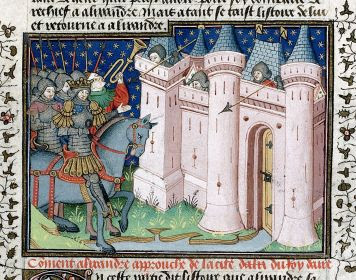
Edward was twice jeered by Lancaster’s garrison at Pontefract in 1317 & 1320 as he passed from north to south
EDWARD II WAS TWICE JEERED BY THOMAS OF LANCASTERAND HIS HOUSEHOLD, IN AT PONTEFRACT IN 1317 AND 1320, WHEN HEPASSED FROM NORTH TO SOUTH…..https://themortimersblog.wordpress.com/2017/03/22/a-royal-traitor-the-life-execution-of-thomas-of-lancaster-a-guest-post-by-stephen-spinks/
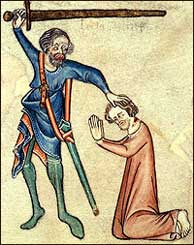
THE EXECUTION OF THOMAS, 2ND EARL OF LANCASTERhttp://www.luminarium.org/encyclopedia/thomasoflancaster.htm
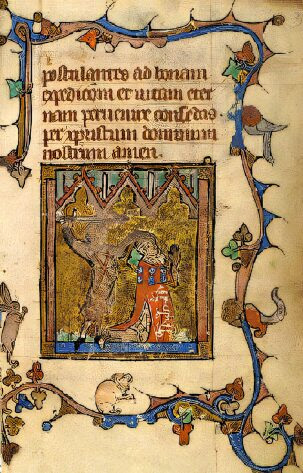
THE EXECUTION OF THOMAS, 2ND EARL OF LANCASTERhttp://www.englishmonarchs.co.uk/plantagenet_74.html
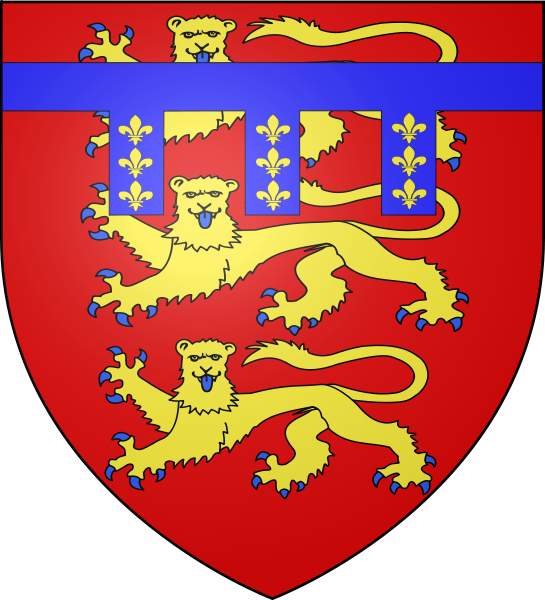
PLANTAGENETCOAT OF ARMS OF EDMUND CROUCHBACK [SON OFKING HENRY III, BROTHER OF KING EDWARD I ANDFATHER OF THOMAS, 2ND EARL OF LANCASTER], THOMAS,EARL OF LANCASTER AND HIS SUCCESSORShttp://www.newworldencyclopedia.org/entry/Thomas_Plantagenet,_2nd_Earl_of_LancasterVENERATION CULTUS OF THOMAS, EARL OF LANCASTER”SAINT THOMAS” [THOMAS THE MARTYR]PICTURE BELOW:
DEVOTIONAL PANEL OF THOMAS OF LANCASTER, PICTURINGHIS BEHEADING OUTSIDE OF PONTEFRACT CASTLEA DEVOTIONAL PANEL WAS A RELIGIOUS OBJECT, SOLDON PILGRIMAGE TO COMMEMORATE AND VENERATESAINTS AND MARTYRShttp://www.culture24.org.uk/history-and-heritage/archaeology/art522182-devotional-panel-of-beheaded-rebel-14th-century-martyr-surfaces-on-shore-of-river-thames

The beheading of the Earl is portrayed within the panel© MOLA / Andy Chopping
READERS
And now it’s the END of our fascinating Historical Document aboutThomas of Lancaster, cousin of king Edward II!
You have travelled with me to the first half of fourteenth century England,have watched with me, as Digital Eyewitnesses, how a big Feud rose betweenking Edward II and his cousin, Earl Thomas of Lancaster, initially loyalto his cousin the king, then fell out with him for personal and political reason,rose against him in an open rebellion and finally was executed for treason.
You watched it all in here
CHAPTERS
ONE
https://www.astridessed.nl/thomas-of-lancaster-rebel-cousin-of-king-edward-ii-from-warlord-to-saint-chapter-one/
TWO
THREE
FOUR
FIVE
SIX
SEVEN
EIGHT
NINE
TEN
https://www.astridessed.nl/thomas-of-lancaster-rebel-cousin-of-king-edward-ii-from-warlord-to-saint-chapter-ten/
SAINT THOMAS!
And what was the most amazing in this Story was the fact, that this grand nobleman, adversary and enemy of his cousin the King, who was all but”Holy”, was declared ”A Saint” [although not officially by Holy Church], who wasvenerated as a Saint by 250 years until Reformation in England destroyed it
SEE CHAPTER NINE!
https://www.astridessed.nl/thomas-of-lancaster-rebel-cousin-of-king-edward-ii-from-warlord-to-saint-chapter-nine/
For me and I don’t doubt for you Readers also, that was very fascinating.
THE END
And now we are at the End of this Story and in the Epilogue it isquestioned:
WHO REALLY WAS THOMAS OF LANCASTERWHAT WERE HIS GOALS/IDEALS?WHERE DID HE STAND FOR?
Travel with me Readers, to the Life and Times of this interesting noblemanfor one last time……
EPILOGUE
WHO WAS THOMAS OF LANCASTER?
In defence of Thomas of Lancaster
TO SET THE RECORDS STRAIGHT……
Finally, I have come to the end of my travel
to fourtheenth century England and the life and times of Thomas,
2nd Earl of Lancaster, who was double royal and first cousin
of King Edward II.
THOMAS OF LANCASTER/HIS JOURNEY
The facts are known and described by me in the earlier chapters:
First Edward II’s close ally [939], he later moved into
opposition because of king’s favourite Piers Gaveston,,
killing the poor man together with his baron
allies in 1312 [940] , which set, of course
a deadly enmity between
him and Edward II. [941]
Simultaneously, Thomas and his allies pleaded for a set of reforms,
limiting the king’s power, the so called Ordinances.[942]
Then, after the desastrous defeat against the Scots at the battle
of Bannockburn in 1314 [943],
being the de facto ruler in England from 1314-1318,
battling new favourites of the King [944] and finally
droven into armed rebellion against the King because
of his most dangerous, favourite, Hugh Despenser the Younger [945],
with the Ordinances as one of his playing cards [which gave Thomas
rightly or wrongly, a sort of heroism], leading to his execution in 1322. [946]
And being a warlord during his later life, became a Saint
after his death! [947]
Fascinating.
And although his many faults and injustices [having
Piers Gaveston executed and having summarily executed
men who rebelled in Lancastershire against
him in the Banastre rebellion in 1315] [948]
, yet IT IS SOMETHING
to be ten years in constant opposition against your king,
trying to limit his powers, gathering allies ansd adherents….
Some of those adherents were that loyal to Lancaster,
that years later they killed men, who had betrayed him….[949]
Or, like die his hard Lancaster ally Sir William Trussell, who was seething with
resentment against the Despensers, to read out the
charges [and the verdict] against the captured Hugh Despenser the Younger at his mock trial in 1326….[950]
That’s immediately debunking the often heard story, that Lancaster
couldn’t keep friends and allies…..[951]
Of course Lancaster lost allies, since it was a time of continually switching alliances, but the loyalty of some of his adherents, as described above, was striking.
And let’s not forget in this story the ”mystery man”,
Lancaster’s often underestimated brother Henry of Leicester
[952], who sided with the Isabella and Mortimer invasion in 1326, stabbing a
dagger in the back of
Edward II , which lead to a general desertion of Edward II’s cause [953],
the execution of the Despensers and eventually, the deposition of Edward II
himself…….[954]
Henry, who would do whatever was in his power to restore the honour
of his brother by promoting him as a Saint [955] and did not
forget or forgive the ones who did his brother harm [The Despensers
and their enmity with Thomas of Lancaster,
see the Chapters, six, seven, eight and ten], or committed treason
against him, like Thomas’ close adherent and ally, Sir Robert Holland
, who deserted him, when he needed him most. [956]
But when everything is said and done, I raise one major question
WHO WAS THOMAS OF LANCASTER?
WHAT DROVE HIM?
A
THOMAS OF LANCASTER
WHAT SOME SOURCES/HISTORIANS SAY ABOUT HIM:
There is much said about him:
I pick some examples:
Edwardthesecondblogspot [the great Blog of historian Kathryn Warner, writer
of a book about Edward II and Isabella of France and Edward II
expert] writes
”Whatever some of Thomas’s contemporaries may have thought of him – the extremely pro-Lancastrian Brut called him the ‘gentle earl’, for example – it’s hard to find a modern historian with a good word to say about him, and hard, for me at least, to find much sympathy for a man who did his utmost to thwart his cousin Edward II at every turn.”
[957]
Luminarium Encyclopedia describes him as a
”coarse, selfish and violent man, without any attributes of
a statesman”
[958]
Encyclopedia Britannica writes
”His opposition to royal power derived more from personal ambition than from a desire for reform.” [959]
Website ”English monarchs” described Thomas of
Lancaster as someone initially loyal, who was forced into opposition
because of the King’s favourite policies [960]
Website the Lady Despenser’s Scribery writes
”Despite his seemingly high ideals about the poor and oppressed, fair patronage and justice, records show that Thomas was actually as vicious, ruthless and corrupt as those he opposed. He was well known for ignoring the matter of the law, especially when he wanted to take land and manors and his harshness as a landlord was also legendary.” [961]
Historian Stephen Spinks, wrote in a very interesting
article about Thomas of Lancaster
about his ”weakness” , describing him as
following:
”In short, he had no aptitude for government and once he was in a position to enact reform, the earl quickly found he did not understand nor was capable of achieving what he had long since demanded. Shouting about the Ordinances was one thing, but once he had them, enacting change was too arduous for him.” [962]
In his dissertation ”Lancashire in the reign of Edward II,
about the lordship of Thomas
of Lancaster in relation to the gentry in his county
[after which he and his family is named] Lancastrershire,
historian Gunnar A. Welle writes about Thomas
of Lancaster as ”avariciousness” and accuses him
of ”bad lordship”, at least referring to Lancashire
[the county Lancaster] [963]
FUNNY
Not one of the mentioned sources or writers was very
pleased with the Earl, therefore it was interesting to read
a less aphrehensive comment
on the website ”Lady Despenser’s Scribery, which is
very fair, given her less complimentary comments above
”
To be fair, Lancaster did his best to implement the Ordinances in full, purging the royal household and local government of men thought to be bad for the running of the country (in other words hostile to Lancaster), and he also attempted to get the country’s finances back into shape by limiting spending. ” [964]
AND
”Edward II certainly had his faults as a king and many of Lancaster’s Ordinances were indeed worthy suggestions for much needed reform.” [965]
And now the following, very
complimentary comment on the New World Encyclopedia:
”……
His instinct, however, was to uphold the law and, notwithstanding his faults, he can not be accused of pure self-interest. He saw himself as answerable to Parliament, which, unlike Edward, he did not ignore or manipulate.”
…….
…….
”As an admirer of De Montford, Thomas would have subscribed to the principles that had developed subsequent to his Parliament of 1265, that all classes should be represented there, that all taxes except “those sanctioned by custom” must be approved by Parliament and that the “common man” was also entitled to protection, security and justice……….
……
…..
”Edward had vowed to “maintain the laws and rightful customs which the community of the realm shall have chosen,” as well as to “maintain peace and do justice” and Thomas had heard this promise. This development of the law was a shared responsibility—through their representatives, the “community of the realm”[14] would have a say in framing these laws for the common good. Thomas Plantagenet did his best to hold the king accountable to his oath. He can be said to have made a valuable contribution to the development of constraints on kingly power. In time, these constraints would result in full-blown democratic government.” [966]
READERS, DID YOU LET THOSE COMMENTS ABOVE
SINK IN?
GOOD.
I will come to that later
First this:
B
SOME THOMAS OF LANCASTER’S ACTIONS UNDER THE LOUPE
”NO INTEREST IN GOVERNMENT”/NOT ATTENDING
PARLIAMENT
Now people are complex natures, as in their relations to
others, as in their ”playing the game of thrones”, the
highest level power play of the Middle Ages.
Sometimes their actions are easy to understand, but in most
cases more complicated than expected af first sight.
Often there is written, that Thomas regularly didn’t attend
parliament and generally didn’t took part in government
at all, as if done to undermine the King’s orders and
position [967] and that may true to some extent:
On the other hand it may be possible, that illness played
a major part too.
In two letters of Edward II, the first to Lancaster himself
in 1305 [when they were still on very good terms] and the
second, in 1311 [when they already were in conflict because of
Piers Gaveston and the Ordinances], directed to Lancaster’s
close ally Sir Robert Holland, there was a reference to an
unknown] illness of Lancaster.
Historian Gunnar A Welles wrote in his dissertation that
the reason Lancaster preferred his Castle Pontefract in his
later years was perhaps due to ill health. [968]
But why not Lancaster sent a message to his king like:
”To my Lord Edward, by the grace of God King of England, Lord of Ireland and Duke of Aquitaine…..[969]
Your Grace,
I can’t attend parliament, due to illness ……”
Your faithful subject and cousin, Thomas, Earl of Lancaster” [”faithful”? HMMMMM……]
Well, of course Lancaster couldn’t and wouldn’t do that because
of the growing enmity and power struggle between him and Edward II, thus undermining his own position by referring to some illness.
No, better to seem ”defiant” [and for a great part he was,
of course], than weakening his position by admitting
an ”ill health”……
Except for [possible] illness there was an other plausible
explanation for Lancaster not to attend parliament.
Since his unlawful execution of Edward II’s favourite
Piers Gaveston [970] there was an obvious enmity
between him and his cousin Edward II.
Doubtless Edward II would have taken revenge on
Lancaster, were it not because that was quite impossible,
since the great power of Lancaster [you remember,
readers, due to Lancaster’s five Earldoms] [971]
The king more or less uttered his desire to
revenge, during the siege of Berwick [to which
Lancaster for once took part], when anncouncing:
”When this wretched business is over, we will turn our hands to other matters. For I have not forgotten the wrong that was done to my brother Piers.” [972]
Perhaps understandable from Edward II’s point of view,
but likewise understandable, that Thomas of Lancaster
not only left the battlefield in Berwick [973], but did not
trust the king anymore. [not that he trusted him
before, but things grew worse]
What if he attended parliament and was arrested?
To make matters worse, the 1315-1318
three favourites of Edward II, Roger Damory, Hugh
Audley and William Montacute did their utmost
best to undermine any reconciliation between Edward II
and his cousin Thomas and even threatened him
by openly calling him a traitor [974 and see also
chapter V]
It is even possible that Damory had persuaded the
king to attack Lancaster at his castle of Pontefract
in october 1317,
which was prevented by the Earl of Pembroke
at the last moment. [975]
Of course it was understandable then, that Thomas
refused to come to parliament, or to meet the king
[who summoned him to come], as long as those three favourites
were at Court…..[976]
A very tense political situation.
So there some possible reasons why Lancaster
didn’t attend parliament or took much participation
in governmental affairs.
On the other hand he seemed to have done his best to
implement the Ordinances [977] which led to a serious
row between him and Edward II. [978]
So summarized:
Lancaster’s reluctance to attend
to parliament or to participate in the government is
not only simply explained as obstructing the king or indifference
and incompetence
in governmental affairs, but could also stem
from illness and Lancaster’s not imaginary
fear of the malicious intentions from Edward II’s 1315-1318
favourites, who intrigued against him [Thomas].
Add to that the [likely understandable] enmity of
Edward II because of Thomas’ involvement in the
murder of his great favourite Piers Gaveston and you
have a good explanation for Thomas’ ”reluctance”
It is a pity that that’s often overseen by some sources.
C
THOMAS OF LANCASTER’S CHARACTER
”VIOLENCE”, ”ARROGANCE”/”DIFFICULTY TO
KEEP FRIENDS AND ALLIES”
Thomas of Lancaster is called ”coarse, selfish and violent” [979] , ”arrogant”, [980], having a ”seeming desire for power” [981]
and a
”bad lord” in the sense of not meeting the needs and wishes
of his retainers , as some sources state [here limited
to his retainers in Lancashire] [982]
That may be true and I found it confirmed in what
I read about him, but so were the other nobles, who
were no peaches either, without of course justifying Lancaster’s behaviour and attitudes.
Let’s be honest:
During the Edward II reign, there was a constant dance for power and switching of alliances
and but few nobles, among who was Hugh Despenser the Elder
[to be fair!] stayed where they were:
In this case:
Loyal to the King. [983]
There has also been stated, that Thomas of Lancaster
”found it difficult to keep friends and allies”
[984].
However, he managed to bind men to him,
who stayed diehard allies, even though they could not
benefit from him anymore.
A man like Sir William Trussell, his loyal adherent since the
beginning of the Lancaster/Edward II conflict, stayed loyal
to him, fought at his side at the battle of Bouroughbridge
,was imprisoned, later escaped and fled
to France, joining the Isabella and Mortimer invasion
and reading out the charges against Hugh Despenser. [985]
Lancaster had allies who were prepared to kill those,
who had betrayed him, years after his execution. [986]
And he WAS capable
of true friendship, for example to his close adherent, Sir Robert
Holland, whom he favoured that much, that an uprising
in Lancashire took place against Lancaster and Holland,
the Banastre rebellion….[987]
Yes, that same Sir Robert Holland, who deserted Lancaster in his hour
of need [988], something his brother Henry, the later Earl of
Lancaster, would never forgive or forget….[989]
D
THOMAS OF LANCASTER/”DESIRE FOR PERSONAL
POWER AND STRUGGLE WITH THE KING
PERSONAL AND BROADER HISTORICAL VIEW
Describing Thomas of Lancaster only as the one
”who did his utmost to thwart his cousin Edward II at every turn”
[990], a ”coarse, selfish and violent man” [991]
, ”that his opposition to royal power derived more from personal ambition than from a desire for reform [992],
is too one-sided.
On the other hand:
To pose him as ”having made a valuable contribution to the development of constraints on kingly power, which constraints
would, in time ” result in full-blown democratic government”
[993] thus making from the Earl a sort of pioneer of later
democratic developments, as the New World Encyclopedia
does [994], is, to my opinion, unbalanced either and a little
anachronistic, because it is somewhat dangerous to
compare the thoughts and opinions of a medieval
royal Earl with views about democracy that would
emerge much, much later.
Life and history are more complicated then that.
The sources, which gave Lancaster a bad press, calling him
”coarse and selfish”, ”a bad lord”, ”arrogant” and ”having a
desire for personal ambition”, etc fail to see, that be as it may.
looking this game of power only at the personal level is denying
one of the important historical developments, which rippled through Middle Ages, namely the struggle
between centralization and decentralization.
In Chapter one I pointed out, that, apart from the personal
matters, the Edward II/Thomas of Lancaster conflict stood in
a tradition of the struggle between centralization
[absolute royal power] amd decentralization [king’s liegemen/
nobles who tried to take as personal power for themselves
as possible]
See it not only as a power struggle, but also
as a fight for more equality:
Not all power concentrated in the hands of one man, but
influence for other groups too.
In this centralization-decentralizatio n game Edward II’s
great grandfather king John Lackland got trouble
with his barons, resulting in the Magna Charta [995]
John Lackland’s son King Henry III [father of Edward I and grandfather
of Edward II], got troubles with his brother in law, the
French noble Simon de Montfort with
English roots [6th Earl of Leicester by inheritance,
officially invested in the Earldom in 1239,
after coming to England and initially
in the favour of Henry III, marrying his siter
Eleanor of England with Henry’s approval]
a man of substance, who rose into open rebellion
against Henry and had far reached ideas about
more freedom for other groups.
In fact, he was the de facto ruler of England
for about a year and is known to have
established a Parliament [some refer to it as
the first English parliament] which stripped
the king of unlimited authority and a second, included
not only barons and knights, but also the burgesses of
the major towns. [996].
So in that light, the struggle between Edward II and
Thomas of Lancaster must be seen and in that light
I find it interesting to answer my final question:
WHO WAS THOMAS OF LANCASTER/
A TROUBLEMAKING AND POWERSEEKING
REBEL OR A SECOND SIMON DE MONTFORT
”Coarse”, ”selfish”, ”arrogant”, a troublemaker, a rebel, ”contributor to
later democratic developments”, ”droven by personal ambitions”
Was he merely a troublemaking rebel or a second Simon de
Montfort, as the New World Encyclopedia seems to think. [997]
There are many connections between Lancaster and England’s first great
”parliamentary” rebel, Simon de Montfort and o irony, one
connection between Lancaster and de Montfort is often overlooked.
They possessed the same Earldom:
After Simon de Montfort was killed in the battle of Evesham in
1265, fighting against the royalist troops under the command
of Prince Edward [eldest son and heir of Henry III, the latter Edward I].
his lands and title were forfeited, being a traitor [rebel against
his king] [998]
Then Henry III created the Earldom of Leicester for his second
son Edmund Crouchback [999], father of Thomas of Lancaster and his
brother Henry.
SO THAT’S THE WAY THE EARLDOM OF LEICESTER CAME INTO
THOMAS’ FAMILY!
New World Encyclopedia writes, that Thomas of Lancaster”based his policies on a strict adherence to the ordinances and an appeal to the work of Simon de Montfort” [1000]
In each case, with his implementing the Ordinances, limiting
royal power, he was building upon a tradition of baronial
opposition, for which de Montfort has given his life. [1001]
In their histories and lives, both men had many parallels.
Starting with royal favour, they fell out with their kings,
developed reform ideas, eventuallty rose in open rebellion
and died fighting their Kings, de Montfort in battle in 1265
and Lancaster, executed in 1322.
And, amazingly:
After their death both men were venerated as martyrs and attempts
were made to canonize them. [1002]
One of them, de Montfort, is now honoured as one of the founders
of modern parliament [1003], while Lancaster has got a
bad press, being a rebel, troublemaker etc
I don’t think that’ s completely fair and both men had more
in common then modern historians seem or are prepared to admit.
Because who was Simon de Montfort?
Reading about his life and times,
he seems to me an adventurer, who firstly enjoyed royal
favour, then fell out with his king,
sided with the already existing baronial opposition [inheritence from king Henry III’s father John
Lackland] and in the process developed radical
reform ideas [for that time] and at the end gave his life defending them..[1004]
And in contrary to Thomas of Lancaster, he had the chance to form
two parliaments to implement his ideas [1005], since he defeated
the king in battle and ruled England more than a year. [1006]
That’s why de Montfort did make a great impression and Lancaster was merely
seen as a troublemaking rebel.
Admittedly, Lancaster was the de facto ruler in England between 1314-1318, but he had much against him, what made it difficult to implement
the Ordinances, although he surely tried.
He had to deal with the Scottish raids in North England, with the Great famine [1007], and with the fact, that
after his execution of Piers Gaveston, he was politically isolated,
especially after the death of his main ally, the 10th Earl of Warwick in 1315. [1008]
And admittedly::
De Montfort was a better soldier and statesman
The nature of the reforms of de Montfort and Lancaster differed, but had in
common, curbing royal power:
De Montfort focused on the installation of a parliament, to which not
only the barons had access, but also the knights and even the burgesses.
[1009].
But the whole thing got further and was quite radical:
Because [according to Simon de Montfort’s ideas] although Henry III retained the
title and authority of King, all decisions and approval now rested with his council, led by Montfort and subject to consultation with parliament. [1010]
The Ordinances, promoted by Lancaster and allies, focused on
curbing the royal power to raise armies and go to war, collecting taxation
and going abroad.
The Lords Ordainers had to give their consent for those royal plans.
[1011]
However, contrary to the Simon de Montfort reforms,
the Lord Ordainers were especially
involved in giving more power to their own social
class, not to the ”lower classes” as the commoners.
But curbing the royal power like that was quite radical too
and in fact building on the ideas of Simon de Montfort.
But was it all ”noble”?
De Montfort’s end was tragic, dying for his ideals, but it was also a
struggle for power between him and king Henry III, no different
from the fight between Lancaster and Edward II.
For let’s be frank:
Would de Montfort really have grown out to a reform rebel, when
not falling out with Henry III, due to political circumstances?
Or would Thomas of Lancaster have developed his love for
the Ordinances, when he did not fall out with his king and cousin?
I doubt it.
Because neither de Montfort, neither Lancaster, seemed to have manifested
those high ideals when still in royal favour.
Both men suddenly ”discovered” those ideals, when falling out with their kings….
Both men developed ideals, but loved power likewise.
And stripped off the personal elements:
There we go again:
The Simon de Montfort/Henry III fight and the Thomas of Lancaster/.
Edward II fight is part of the greater struggle between centralization and
decentralization.
And without forgetting the injustices they committed [1012], they both were
reformers and at the end prepared and compelled [there was no way back!]
to pay the highest price.
It’s important, that de Montfort’s contribution is appreciated and honoured.
But it is also important, to see Lancaster in a more positive light and
acknowledge, that he made an important contribution to curbing
absolute monarchy and implementing the parliamentary rights.
It is high time for someone to write this down, giving Lancaster,
with all his faults [but so had Simon de Montfort] a far better press than
he got untill now.
He held to the Ordinances [1013] against all odds and fought a king, who,
although certainly generous [1014] and sometimes unexpectedly forgiving [1015],
was a tool in the hands of ambitious and ruthless favourites
and therefore turned into a bad and even desastrous ruler.
And although rising against his king WAS treason and he had his own selfish motives,
Lancaster also fought to implement those Ordinances.
That deserves appreciation, which I want to
give him posthumously, 695 years after his execution, not closing
my eyes for his faults and injustices.
Readers, when you really read all those chapters out, KUDOS!
Hereby a bottle of champaign, out of appreciation.
It was nice to travel with you to the past.
Perhaps I’ll travel with you, again……
ASTRID ESSED
AND HERE COMES YOUR BOTTLE OF CHAMPAIGN!



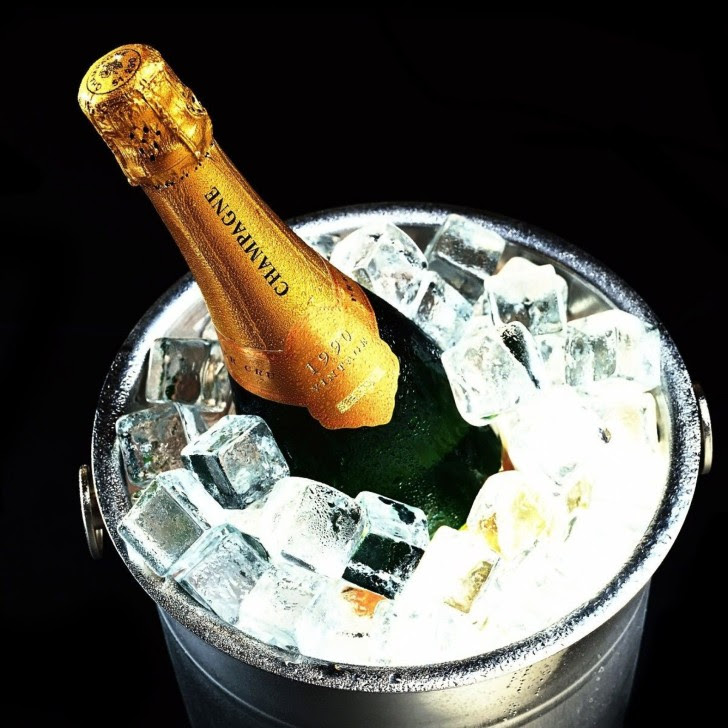
NOTESNOTES 1-1015https://www.astridessed.nl/notes-1-1015-at-article-about-thomas-earl-of-lancaster/SPECIFIED1-250https://www.astridessed.nl/notes-1-250-at-article-about-thomas-earl-of-lancaster/251-347https://www.astridessed.nl/notes-251-347-at-article-about-thomas-earl-of-lancaster/348-400https://www.astridessed.nl/notes-348-400-at-article-about-thomas-earl-of-lancaster/401-451https://www.astridessed.nl/notes-401-451-at-article-about-thomas-earl-of-lancaster/452-503https://www.astridessed.nl/notes-452-503-at-article-about-thomas-earl-of-lancaster/504-587https://www.astridessed.nl/notes-504-587-at-article-about-thomas-earl-of-lancaster/588-666https://www.astridessed.nl/notes-588-666-at-article-about-thomas-earl-of-lancaster/667-761https://www.astridessed.nl/notes-667-761-at-article-about-thomas-earl-of-lancaster/762-806https://www.astridessed.nl/notes-762-806-at-article-about-thomas-earl-of-lancaster/807-938https://www.astridessed.nl/notes-807-938-at-article-about-thomas-earl-of-lancaster/939-1015https://www.astridessed.nl/notes-939-1015-at-article-about-thomas-earl-of-lancaster/
